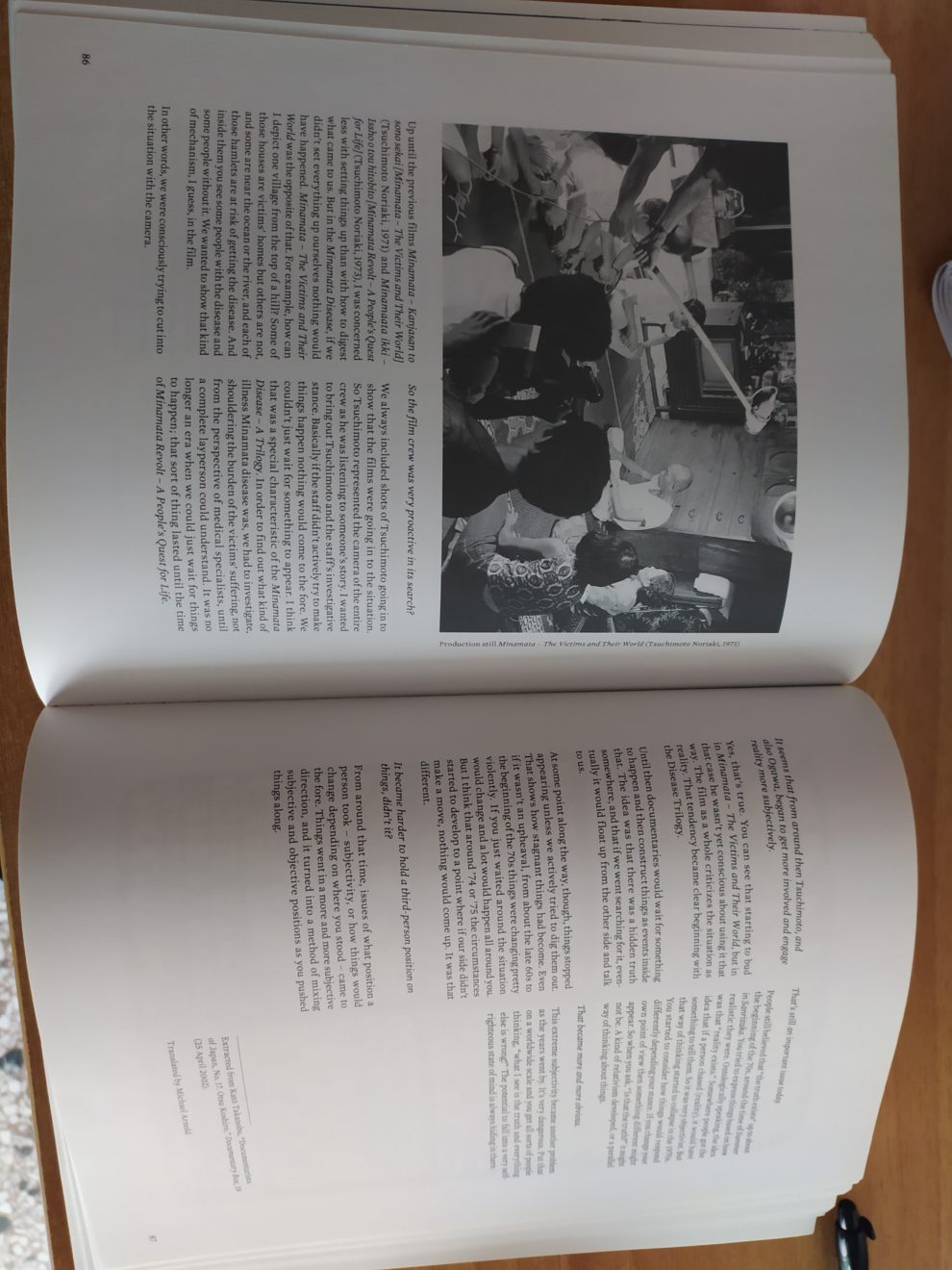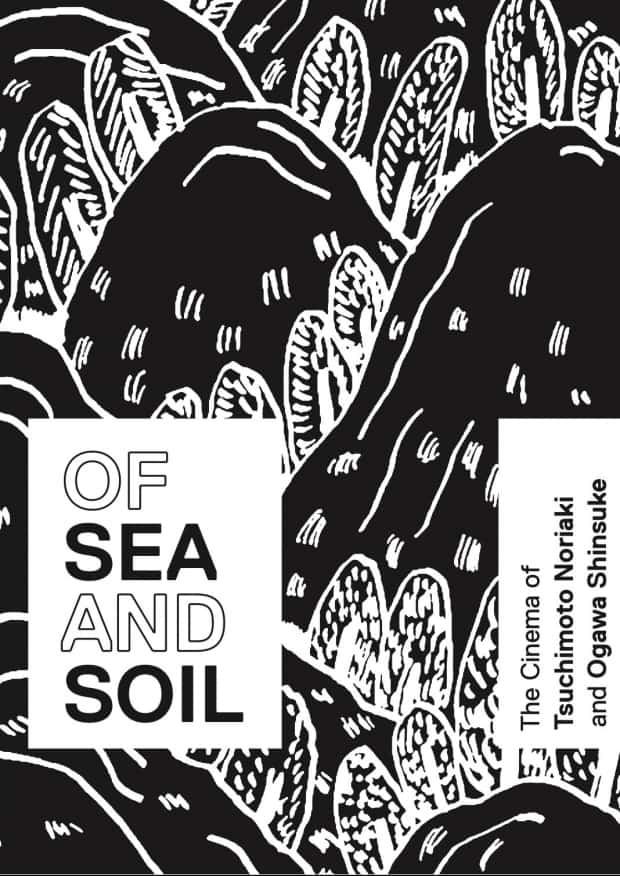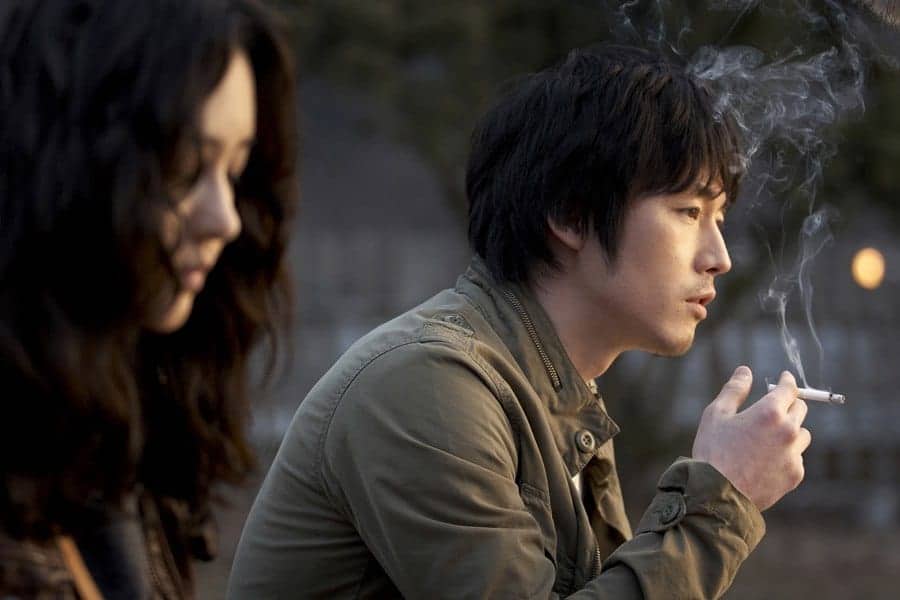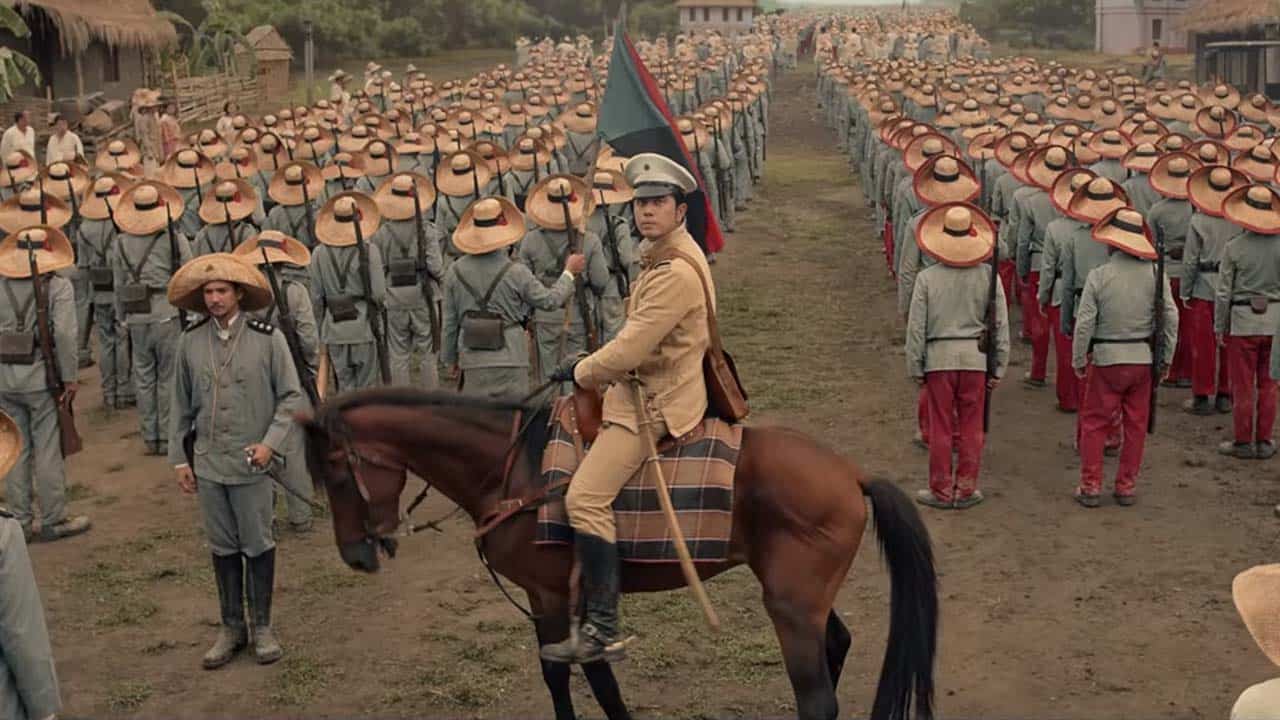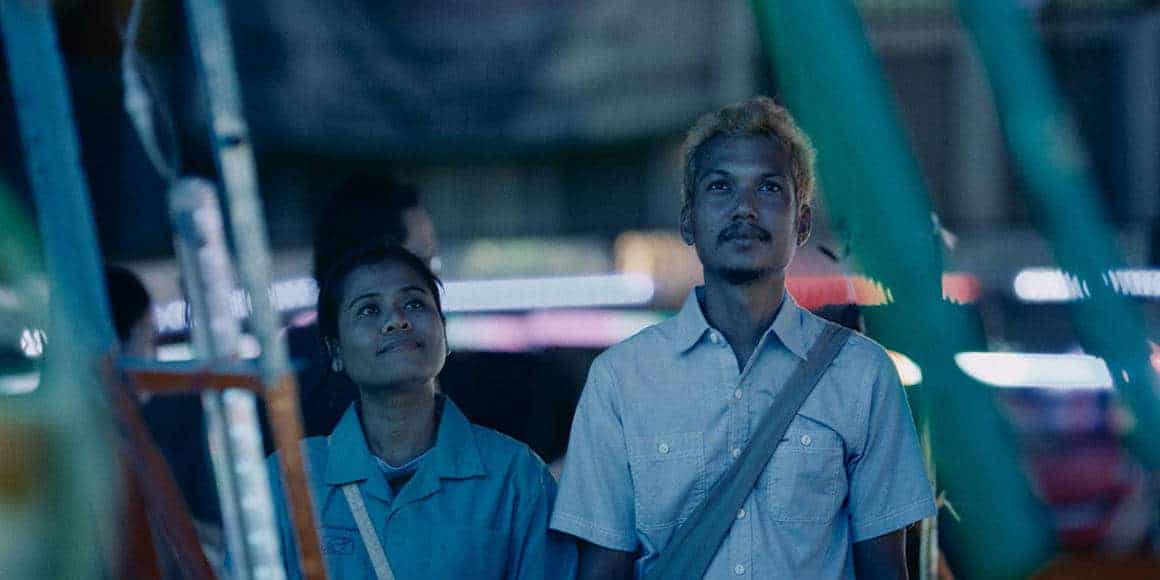*special thanks to Nancy Fornoville for gifting me this book
On the occasion of the film programs dedicated to Ogawa Shinsuke and Ogawa Pro at CINEMATEK (April 1 – May 5, 2019) and Tsuchimoto Noriaki at Courtisane Festival (April 3 – 7, 2019), Stoffel Debuysere, Elias Grootaers, and Quinten Wyns have compiled a book that contains a number of essays on the work and life of Shinsuke Ogawa and Noriaki Tsuchimoto, by a number of experts but also by the filmmakers themselves.
Buy This Title
The first part of the book deals with Shunsuke Ogawa and particularly his company, Ogawa Pro and the way he and his crew shot the “Sanrizuka” documentary series, which recorded the struggle of farmers and student protesters to prevent the construction of the Narita International Airport in Sanrizuka, Chiba Prefecture. The rather unusual ways he implemented both in the way he run his company and the way he shot his documentaries are highlighted in the best fashion through the plethora of texts. In that regard, we learn about the devotion he commanded, which was the main force that so many crew members joined Ogawa Pro over the years, as much as the difficulty with which they managed to leave it, which actually points more towards escaping than simply quitting. The reasons that led him to his unique stance on the medium of documentary, which suggests that one can only record a reality that one has been truly immersed in, are also mentioned and analyzed here, with his own explanation about his approach being rather intriguing. Furthermore, the essays also deal with some of the key members of his crew, most notably his frequent DP Masaki Tamura, Koshiro Otsu, and the final member of Ogawa Pro, Takanobu Kato.
At the same time however, the many different kinds of essays become a bit disorienting, as, despite the fact that they are presented in chronological order, the contextual order can be somewhat confusing. On the other hand, and even despite this minor fault, the amount of information highlights Ogawa's work and a number of crucial events in his life in the best fashion, as much as the tremendous effort of the people who collected all these writings, while Serge Daney's article from 1989 is truly remarkable.
The part dedicated to Noriaki Tsuchimoto, although smaller, is better organized and ends up being more thorough and condensed, again highlighting both the man and his work, along with his connection with Shinsuke Ogawa. The introduction by Aaron Gerow and the subsequent interview Tsuchimoto gave to him function as a great entrance to the whole subject, with the part never actually losing its pace, while the director's own texts offer even more information about his work.
Lastly, the combination of the texts of the two parts also analyze the medium of documentary, its difference from fiction, and the different methodologies and approaches one can use when shooting one.
The edition by Sabzian is also quite good, with the book featuring many photographs in black-and-white and an excellent cover by Patrice Deweer which mirrors the aesthetics of both the images and the context. The quality of the paper is high and the sole fault in the edition is the relatively small letters, although any reader will probably get used to them after a few pages.
Since Noriaki Tsuchimoto and Shinsuke Ogawa's works are not particularly known in the west, “Of Sea and Soil” functions as a great introduction to both the people and their films, as much as a rather thorough analysis of their lives and oeuvres.


